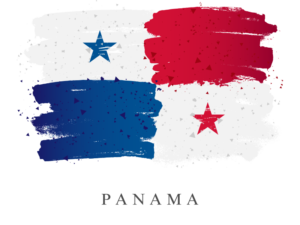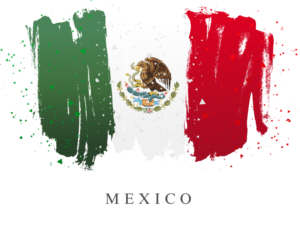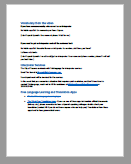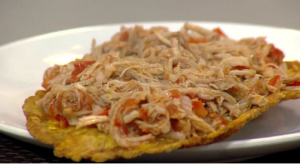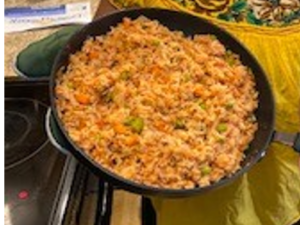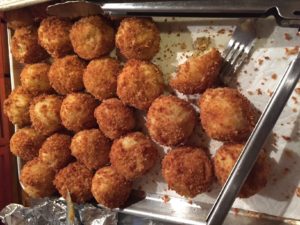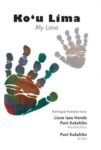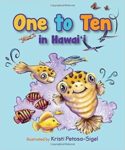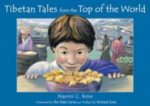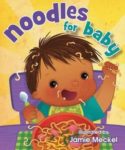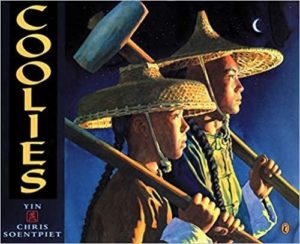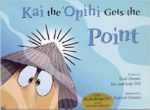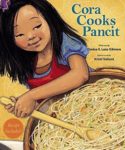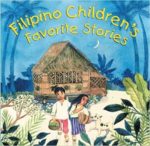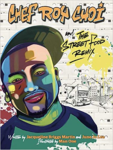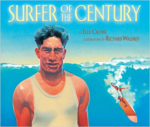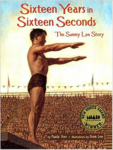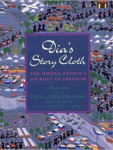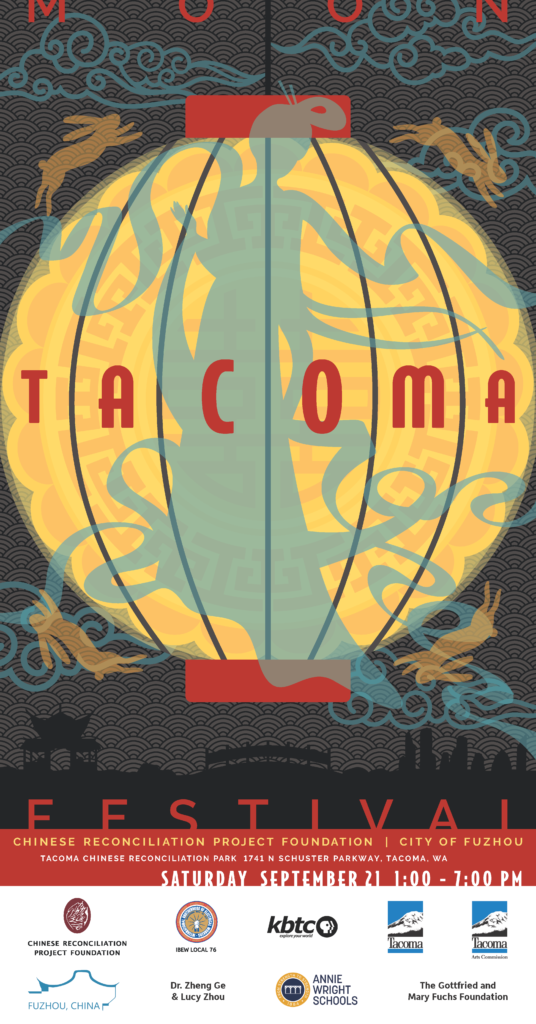Run for your life*
Originally by Kelly Patterson, Telecenter Operations, Unemployment Insurance Division of the South Puget Sound District Tax Office
For many people, running is a form of recreation. It can be relaxing, stimulating, even spiritual. ForSovong Voeuk (pronounced VŌK), a Tax & License Compliance Officer with the City of Tacoma, running is a special form of freedom. Today, Voeuk runs marathons; as a child, he ran for his life.
Voeuk was born in the late 1960s in Cambodia, the youngest of five children. His childhood came to an abrupt halt in April 1975 when the Khmer Rouge, a communist guerrilla organization that plunged Cambodia into civil war, began the forced evacuation of his city.
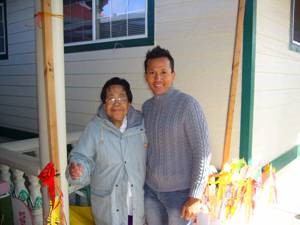
Sovong and his mother, Thol.
Voeuk was among an estimated two million Cambodians who were forced from urban areas into rural concentration camps. Voeuk remembers the evacuation well.
“Soldiers came, shouting that the Americans were dropping bombs and would soon arrive,” Voeuk recounts. “We had to drop everything and run.”
The regime instructed people to leave their houses unlocked and leave quickly, assuring the evacuees that their possessions would be safe. Once the city was evacuated, the regime burned it to the ground.
In the chaos that followed, Voeuk’s family was separated. His two oldest brothers, Chhay Hak and Hoeun, were away at college, and his brother Santo was away on vacation when the Khmer Rouge invaded. Eventually, Hoeun and Santo reunited with the family. But Voeuk’s oldest brother, Chhay Hak, was never seen again.
Voeuk’s father, a police officer, had heard rumors that the Khmer Rouge intended to reconstruct Cambodia. The regime believed that the population must be made to work as laborers in one huge federation of collective farms. All institutions, such as family and religion, were destroyed. Factories, schools, universities, and hospitals were shut down. Anyone in opposition would be eliminated. This included anyone who was educated, anti-communist, or considered “elite.”
Knowing they were in danger, Voeuk’s father instructed the family to pretend they were farmers. If asked to read or write, they were to pretend they could not. Shortly after the family arrived at the evacuation site, Voeuk was taken from his family to a forced-labor camp for children aged six to 12 years. His sister, Phalla, was taken to a different camp where she, too, became a forced laborer.
As his father had warned, the soldiers soon questioned Voeuk about his upbringing: where he lived, what his house looked like, and what his father did for a living. Voeuk had an aunt and uncle who were farmers and he described their home and farm. When the soldiers handed him something to read, he held it upside-down and purposely looked confused.
With his life spared, Voeuk and the other children were made to work 14 to 16 hours a day, seven days a week, with no rest. They had nothing to eat or drink except one small bowl of rice and a bamboo container with water.
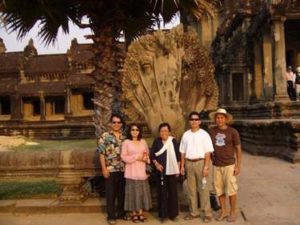
From left to right: Sovong’s brother Hoeun, sister-in-law Rattana, mother Thol, brother Santo and Sovong.
The hunger Voeuk experienced was unbearable. He describes dreaming about food at night. “We learned quickly not to complain or cry or say we were tired or hungry,” Voeuk explained.
The regime had a slogan they recited to the children regularly: “To spare you is no profit, to destroy you is no loss.”
Children who violated the rules of the camp received two warnings; the third offense resulted in brutal death. Not wishing to waste ammunition on executions, the regime used clubs or machetes to kill. Those not executed died from starvation, malaria, and disease.
Voeuk lived in the camp for three years, eight months and 20 days. In 1979, Vietnam invaded the country, putting the regime on the defensive. Voeuk’s parents used the opportunity to escape. “My parents came to the camp along with about eight other parents,” he explains. “They found us and told us to run.”
Voeuk’s family fled to a refugee camp on the border of Cambodia and Thailand. A church in Tacoma sponsored his family, which allowed them to immigrate into the United States. Eventually, he was reunited with his parents, sister and two remaining brothers.
“We only lost one family member and are considered lucky,” he said. “Most people lost half or two-thirds of their family members.”
Voeuk was 17 years old when his family came to the United States. “I went through a huge culture shock,” Voeuk said. “Everything was so different – the food, the buildings, the weather, and the people. The whole landscape was so different.”
Because they could not speak English, work was difficult to find. His family earned a living from working in strawberry and cucumber fields. Voeuk enrolled in high school where he pushed himself to learn English. His parents saved what little money they had, hoping to send him to college. When he wasn’t in school, Voeuk was also working to save money for college.

Sovong pumps water from the well he and his family helped to dig on a return visit to Cambodia in 2006.
Unlike many of his peers, Voeuk had little time for sports and extracurricular activities. His high school physical education teacher once approached him about running track. “In P.E., we would run laps around the track,” he said. “I was always the first one finished.” He turned down the offer to join the track team so he could work and help his family. But he maintained a love for running.
Voeuk finished high school and in 1993 he received his bachelor’s degree in business administration from Pacific Lutheran University. He is the first person in his family to receive a college degree in the United States.
When his father passed away shortly before Voeuk’s graduation, Voeuk took the lead in caring for his elderly mother. After college, he worked in sales while looking for something in his field. He later found a job with the Tacoma Housing Authority, where he worked for four years.
In 1999, he was hired by the Employment Security Department as a tax specialist. He was with the agency for 13 months when he was offered a higher-paying position at the Department of Revenue. He took the position, but he missed his Employment Security coworkers. In December 2003, he returned to the agency and a tax-specialist position.
“He’s a star performer,” said Phyllis Evans, Voeuk’s supervisor from the Employment Security Department. Evans explained that when Voeuk join the South Sound District Tax Office it had been formed three years prior and had already experienced a large turnover of employees. The office had 15 staff vacancies and very little space. “There were 20 people crammed into an office designed for 11, and people were frustrated,” Evans said. Staff worked overtime for two years just to keep up with the current workload. “Sovong’s attitude was a great asset to the team,” she said. “He always worked overtime, and he offered encouragement to people when morale was low.”
In February 2006, Voeuk spent one month in Cambodia with his mother, two brothers, and sister-in-law, Rattana. The primary purpose of the visit was to allow his 86-year-old mother to visit with family and to reconnect with friends and relatives. Voeuk also used it as an opportunity to give back to the people of Cambodia who had lost so much.
Voeuk’s family shipped several boxes of medical supplies, clothing, and food to a village on the outskirts of Kampong Cham. They distributed the supplies and helped to dig a well so the people could stop carrying their water over a distance into the village.
“It was healing to go back,” he said.
When he returned from the trip, he found he had fallen behind on his audit goal at work To get caught up, Sovong turned in 17 audits a month, 10 more than the monthly target.
“I loved my job,” Voeuk says with a smile.
The next year, in May 2007, Voeuk completed his first marathon.
In January 2015, after living internationally for a couple of years, Voeuk came to work for the City of Tacoma in the Tax & License Department. He continues his legacy of being a hard worker, a mentor, and an encourager to his coworkers.
“Sovong is an amazing and positive person,” said his current manager, Danielle Larson. “Besides being a coworker you can always count on, he continually goes out of his way to be a resource for business owners he meets. Some business owners will call him months or years later with questions about City programs or resources. The Finance Department/Tax & License is lucky to have him on our team.”
“It was nice to return to Tacoma,” he said. “I’ve always loved the diversity and beauty of this area. You don’t realize how beautiful it is until you go somewhere else.” Returning to Tacoma also meant returning to the family who still lived in the area.

Sovong finishes his first marathon on May 13, 2007.
But what inspires Voeuk? “The little things in life inspire me – salmon spawning, nature, the determination of living things to just live,” he said.
Running is still a large part of Voeuk’s life, but now he runs for the joy of it. His many accomplishments, like the many miles he has run, come from the resiliency and determination that live inside him.
Trauma and tragedy have the ability to make someone angry or bitter. But for Voeuk, they have made him strong and kind.
“I don’t take anything for granted,” he said. “I’ve had a tough life, but I am so grateful – grateful for everything.”
* Originally published in In The Spotlight in 2015 and updated for publication on this page in 2020.
If you appreciated this story, the Netflix film, First They Killed My Father, is a story that resonates with Sovong and his story.


